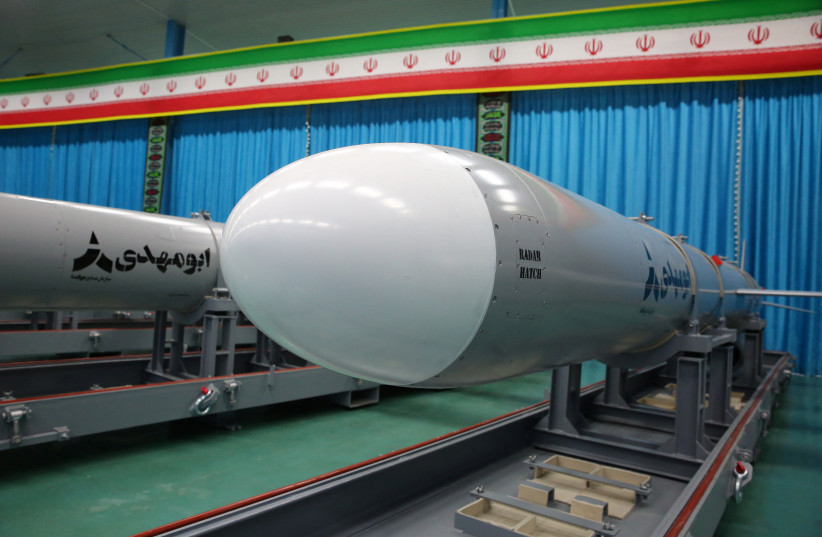The Iranian Navy and the Islamic Revolution Guards Corp (IRGC)'s Navy both received a cruise missile that is supposed to extend their ability to strike at ships in the region. The missile is called the Abu Mahdi and is said to be a “high-precision naval cruise missile.”
This would give them a cruise missile with a claimed range of 1,000 km, Iranian state media claimed on Tuesday. The announcement comes amid rising naval tensions as the US has sent more warplanes and ships to the Persian Gulf. Iran doesn’t have a very large navy or air force, and therefore using missiles and drones is the main way Iran can threaten ships and other naval forces.
The announcement is important to Iran and was widely reported by Iran's media. “Iran's Defense Minister Brigadier General Mohammad Reza Ashtiani said during the ceremony that the Abu Mahdi cruise missile is capable of confronting electronic warfare and evading radar systems and has utilized artificial intelligence to chart its optimal flight path,” Iran’s pro-regime Fars News said.
How will the missile impact Iran's naval defense capability?
It claimed that the locally made missile can expand the naval defenses of Iran and expand the zone Iran can threaten and also broaden the operational range of Iran. The reports point out that since August 2020 Iran has two missiles named after the late General Qassem Soleimani.
Soleimani was killed by a US drone-fired missile in 2020. Previous reports had indicated earlier this year that Iran was outfitting naval units with cruise missiles. We have reported previously in January 2023 on how Iran has conducted drills in the Persian Gulf and Gulf of Oman to showcase its cruise missile and drone capabilities.

According to Iranian state media, the missile can be used against ships such as destroyers and frigates. The US recently sent a guided-missile destroyer, the USS Thomas Hudner, through the Suez to join the US Bahrain-based 5th fleet. Iran claims the new Abu Madhi missile is improved from previous versions and has artificial intelligence that can help it navigate its flight path. It can “pass over natural and artificial obstacles as well as the enemy’s radar and defense systems,” Irna says.
“In line with the defense doctrine of the Islamic Republic of Iran and the improvement of its missile and defense power, we are witnessing today the joining ceremony of the long-range Abu Mahdi cruise [missile], which is a strategic system that we can call unparalleled,” Defense Minister Brigadier General Mohammad Reza Ashtiani said. Rear Admiral Alireza Tangsiri, the commander of the IRGC Navy, also addressed the ceremony: “One of the things that this missile can do is to repel the enemy, and it can drive the enemy away from our coasts,” he said.
A response to US activity in the region
The announcement of the missile is seen as a response to US moves in the region. Iran’s missiles like this have never been tested in combat and it is unclear how they will perform. It is unclear if they have the ranges and capabilities that Iran claims. The story of new command and control systems and how it uses AI for guidance has not been proven. Neither had its ability to evade radar.
Cruise missiles can sometimes skim the water and therefore it is hard for radar to detect them. They are also supposed to be able to maneuver. Iran usually boasts about new systems and makes all sorts of claims that are hard to verify. For instance, Iran claims this missile can be prepared for launch quickly. It can also be used with other missiles for the simultaneous firing of several missiles at the same target.
Iran’s media also noted that it recently unveiled the Khyber ballistic missile with a range of 2,000 km that carries a warhead weighing 1,500 kg. Iran claims its new hypersonic missile can also reach throughout the region, threatening Israel and Europe.
Pro-Iran media in the region highlighted the new naval missile. Al-Mayadeen, for instance, posted a story on it and Iran has also received social media coverage of its missile, even if the missile is not actually new and its capabilities are not proven.
